The first concept that is immediately put on the shelf about a teahouse here in Japan is that there will be no fun. The second concept is that there must be a kind of rigid adherence to structure and form.
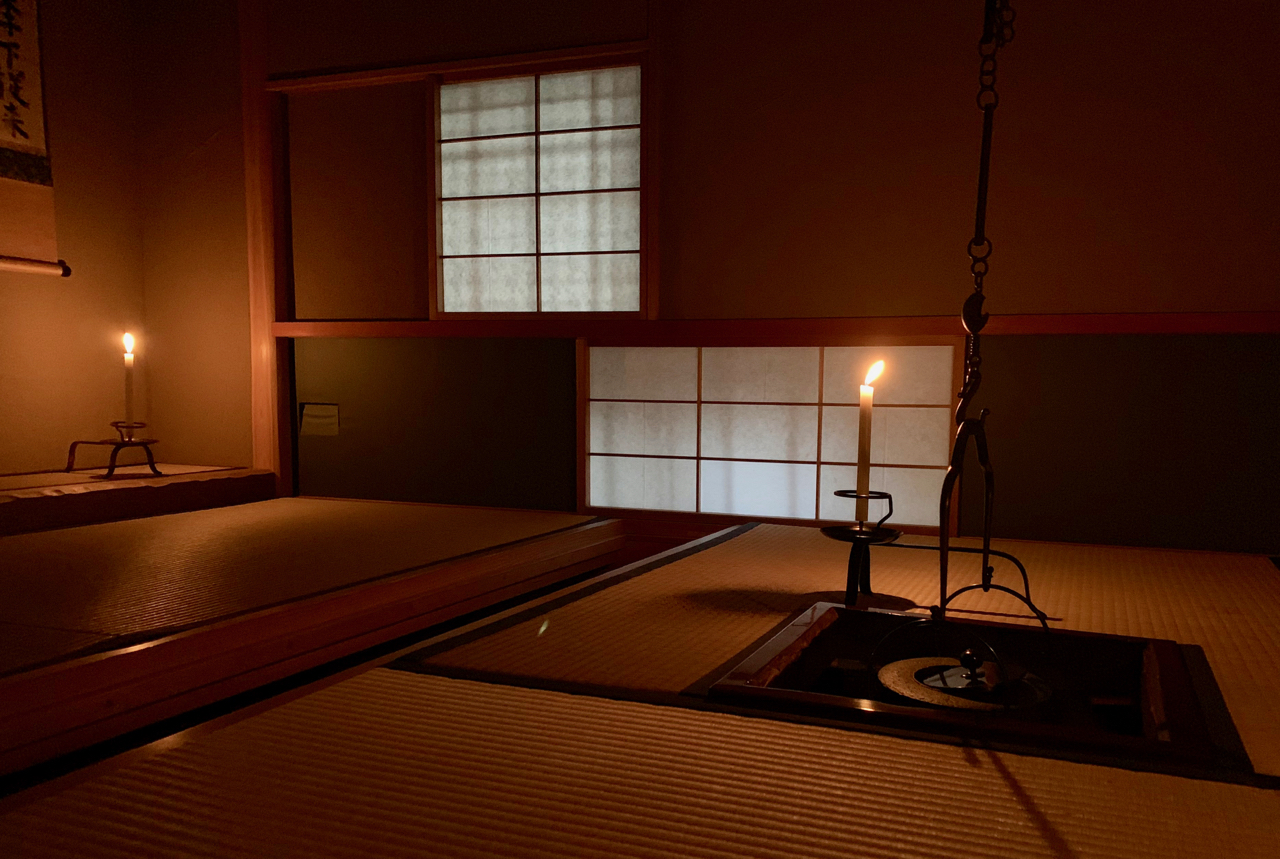
Clean light and simple lines introduce a space of few needs. The teahouse reigns.
Sitting with the buzz of energy that is the Sensei of this teahouse, a serving of Sake is offered with a long story of how it was made, by whom, and why it is important that it come before tea. Giggles, welcoming on a wet night and loads of informality ease what I think ‘might’ be in store.

The same kettle will be used with a different insert to prepare both the tea water and the rice
Layer upon layer of stories come out in the whirr of activity amidst the small space of candlelight and tatami’s. It is a space that is deliberately shorn of things not needed.

Tea utensils – the needs
Sensei is ruminating and in a humming motion of talk and actions along with smiles. Joy is present within this starkly lit little square of clean tones. A huge water kettle bubbles and bamboo utensils sit in a tidy little rectangle of space…here in this room they are the needs!!
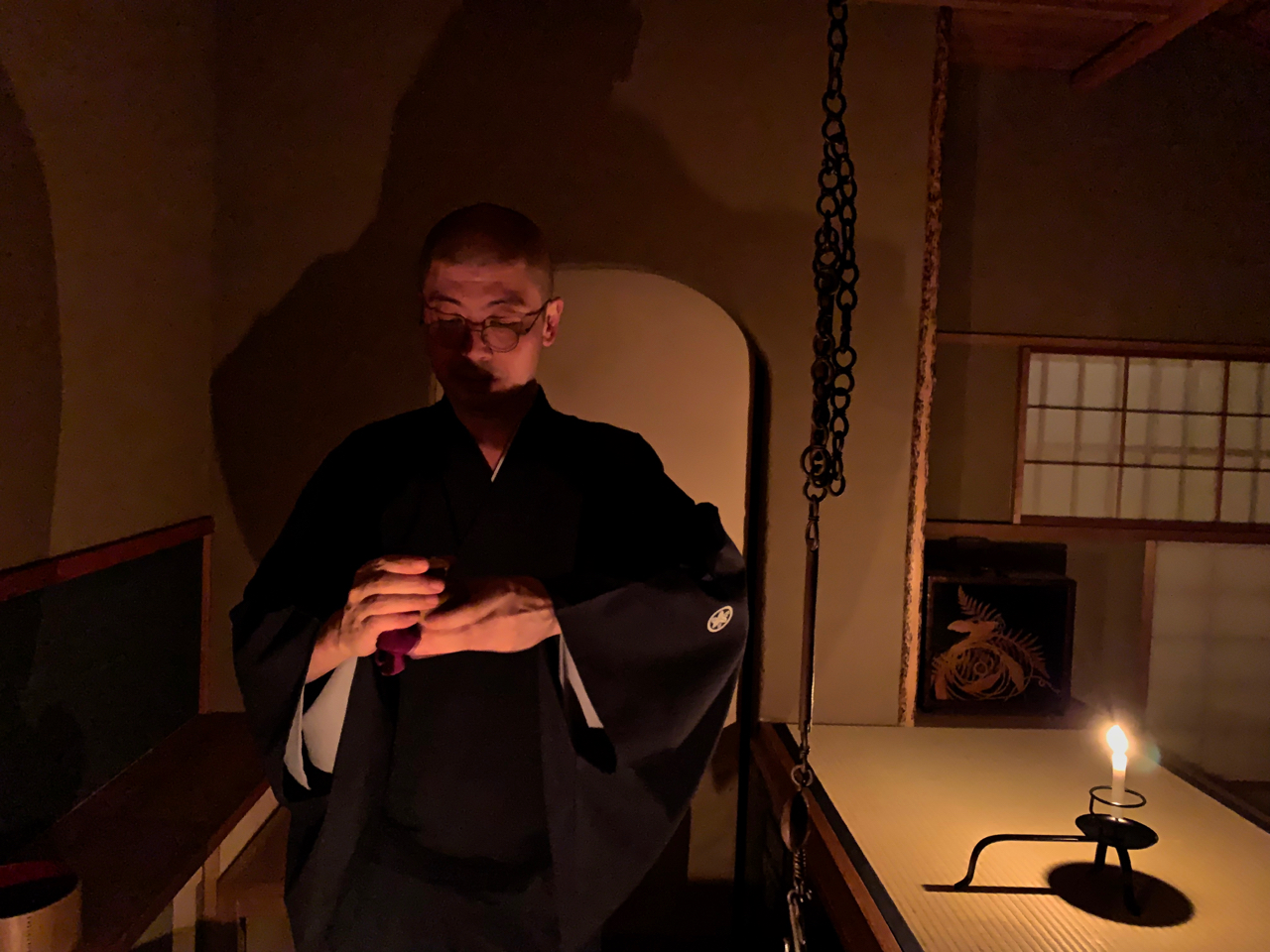
During a more solemn moment (very brief) where ceremony is required.
Another concept of the teahouse is quickly put to the side as well. Food will be served before a tea is offered…and so will Sake. Not a thing will be wasted. Ceremony will intersperse with laughter and movement. Offerings of Sake are made to the master by the guests to ensure that the concept of ‘offerings’ are first and foremost.
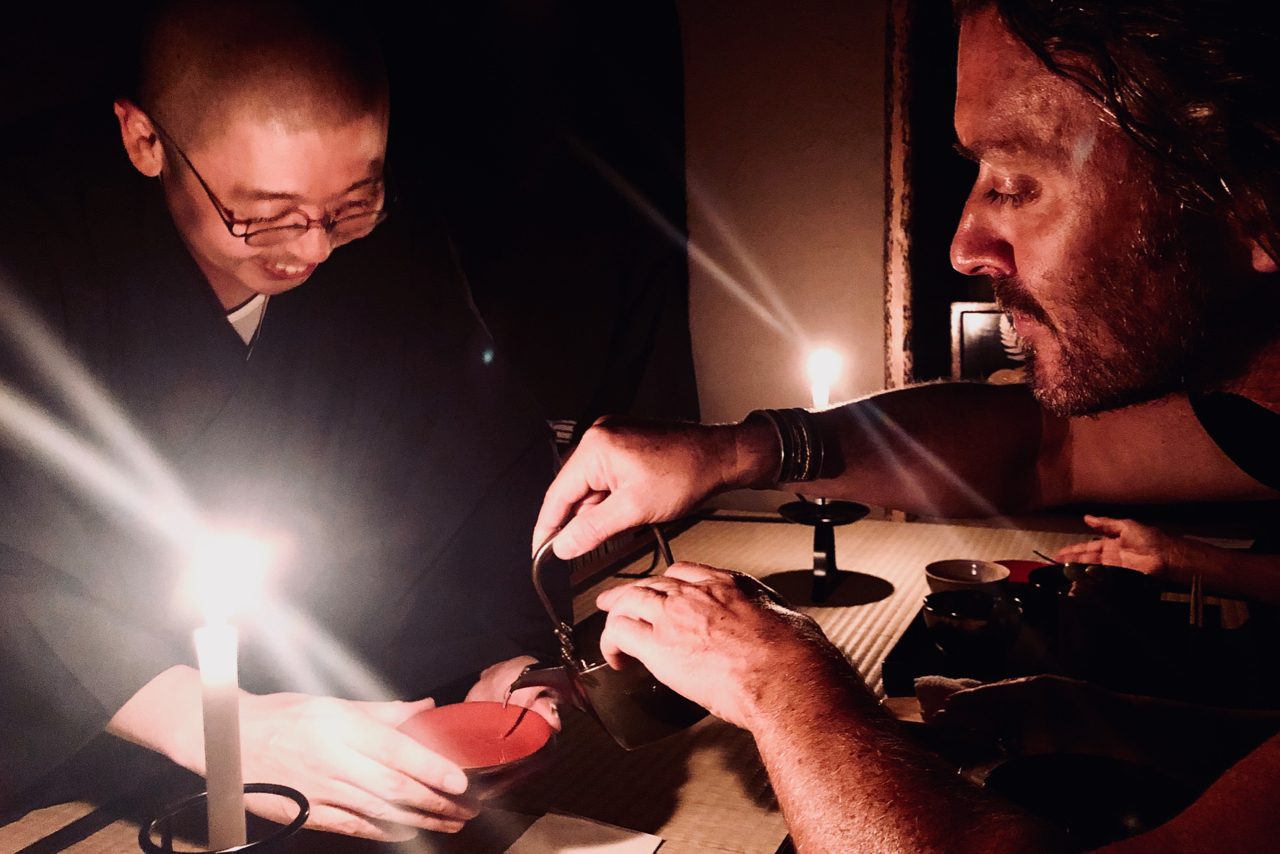
I offer our esteemed master a sip of Sake
Many reminders of how the teahouse here in Japan (and throughout Asia) has been far more than simply a place of formality and structure are emphasized with each passing second. The teahouse is a space to commune, engage, and share.
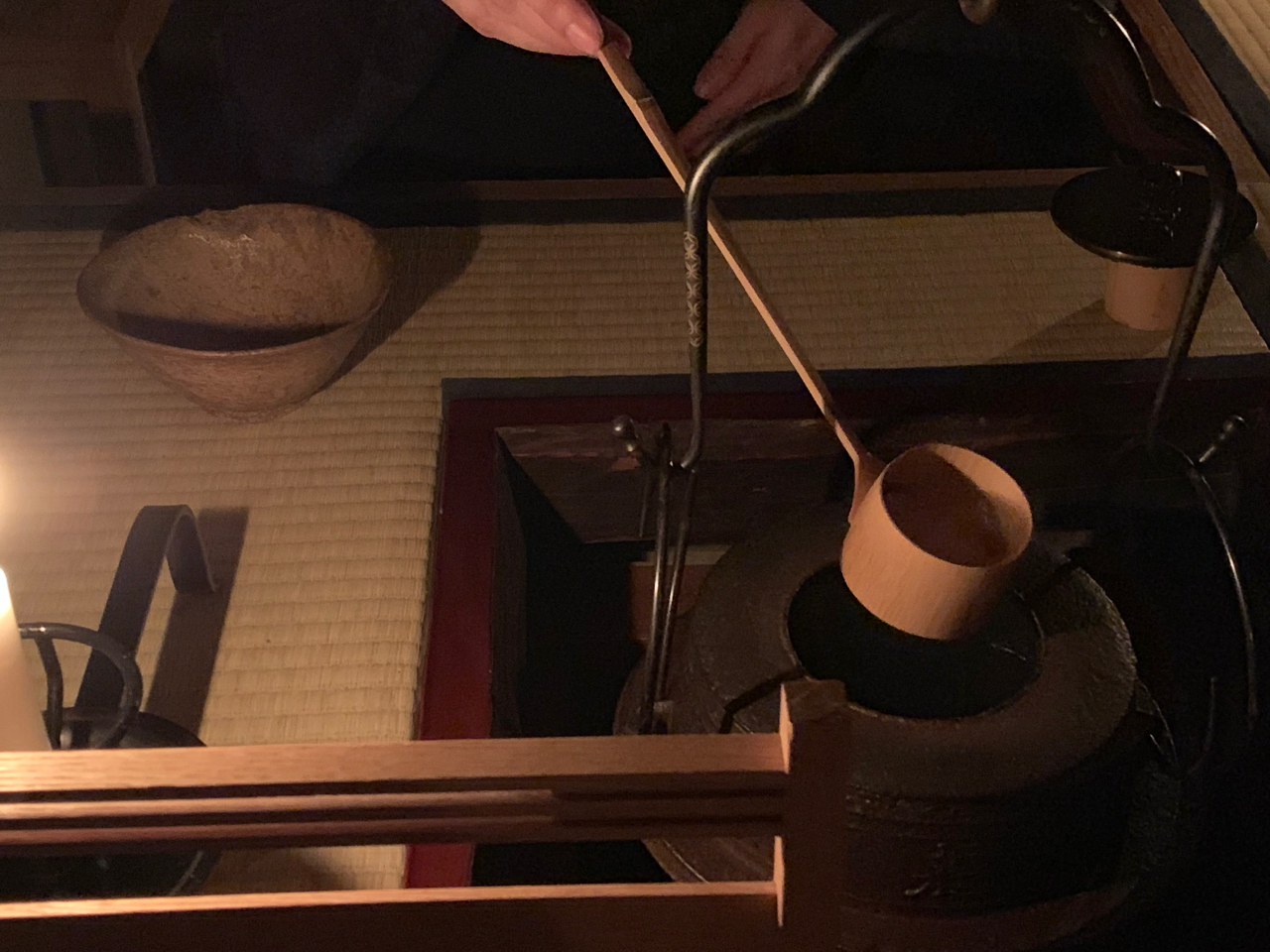
The sacred element that makes it all work: water
Food served, Sake slurped, stories of each and every single item within the teahouse explained and then, and only then, much later, is a thick layer of Koicha (the thick green paste that is the result of whisked Matcha) served to us.
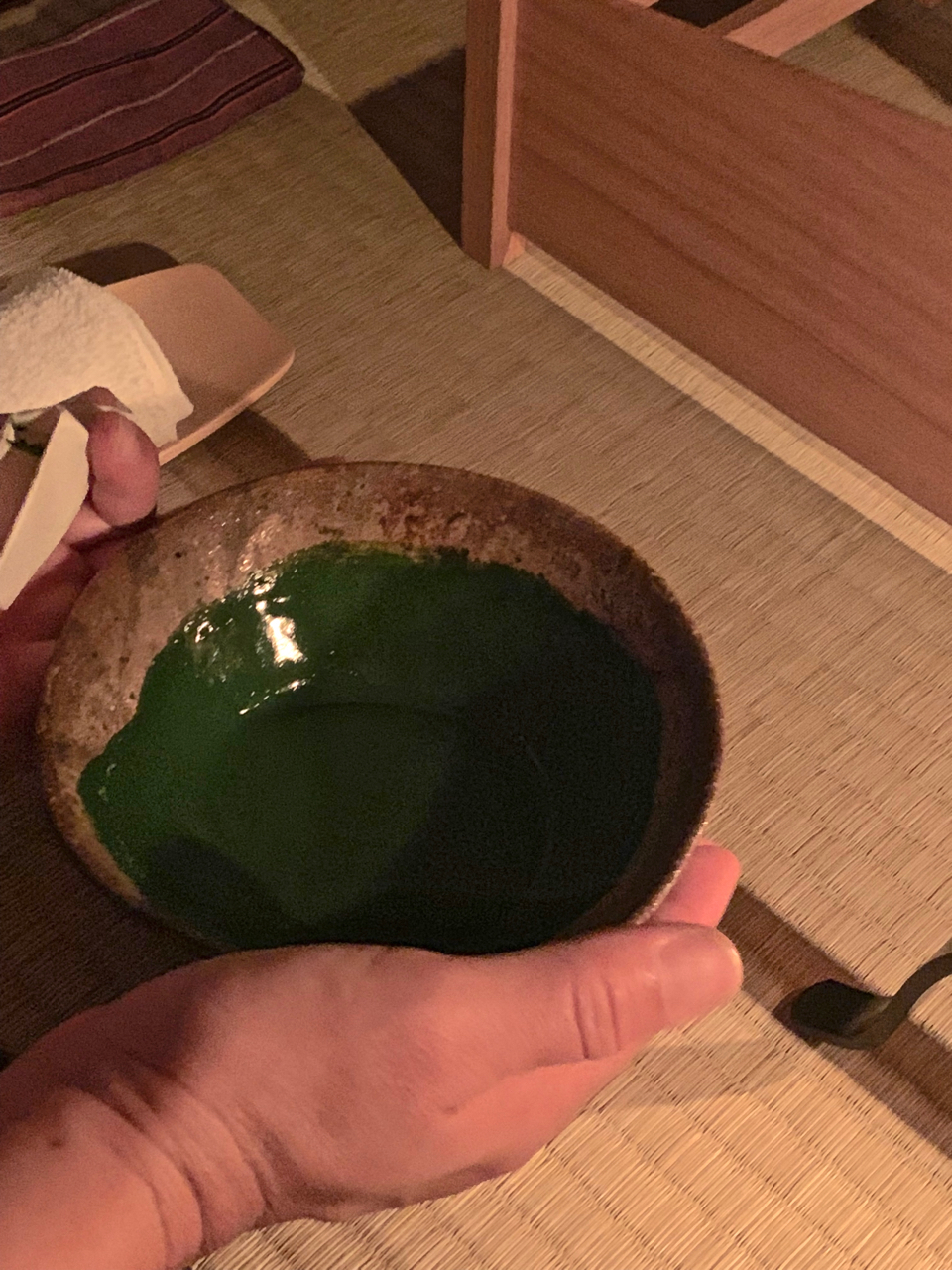
Koicha in all of its remarkable glory
A second thinner tea, called Usucha, is then served to clean up the remnants (and not waste) of the first tea serving.
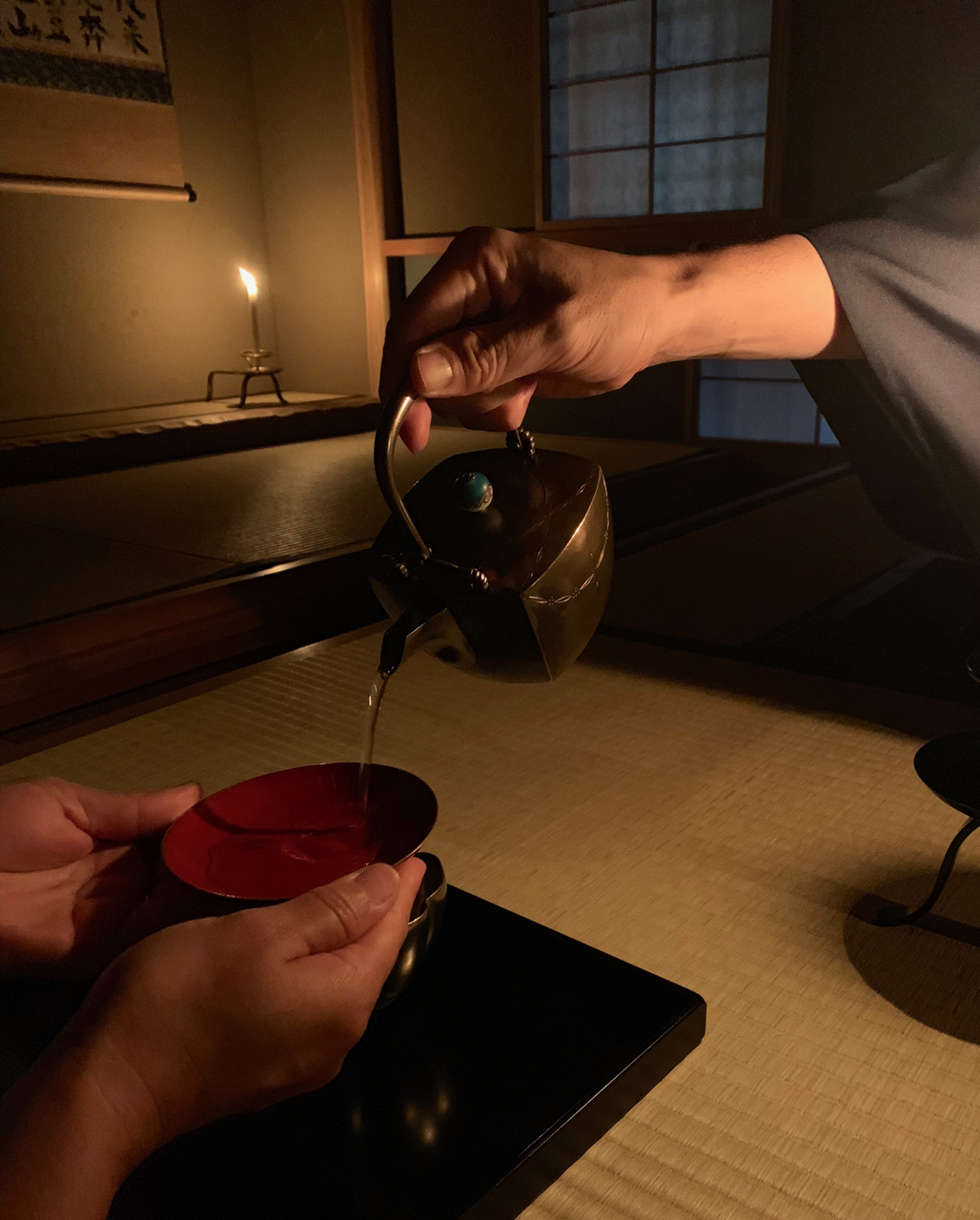
It is all about serving and sharing
And then, more Sake. The night with its confluence of stimulants and sake, rice and superb food elements is just beginning. The night will willingly flow forward.

About JeffFuchs
Bio
Having lived for most of the past decade in Asia, Fuchs’ work has centered on indigenous mountain cultures, oral histories with an obsessive interest in tea. His photos and stories have appeared on three continents in award-winning publications Kyoto Journal, TRVL, and Outpost Magazine, as well as The Spanish Expedition Society, The Earth, Silkroad Foundation, The China Post Newspaper, The Toronto Star, The South China Morning Post and Traveler amongst others. Various pieces of his work are part of private collections in Europe, North America and Asia and he serves as the Asian Editor at Large for Canada’s award-winning Outpost magazine.
Fuchs is the Wild China Explorer of the Year for 2011 for sustainable exploration of the Himalayan Trade Routes. He recently completed a month long expedition a previously undocumented ancient nomadic salt route at 4,000 metres becoming the first westerner to travel the Tsa’lam ‘salt road’ through Qinghai.
Fuchs has written on indigenous perspectives for UNESCO, and has having consulted for National Geographic. Fuchs is a member of the fabled Explorers Club, which supports sustainable exploration and research.
Jeff has worked with schools and universities, giving talks on both the importance of oral traditions, tea and mountain cultures. He has spoken to the prestigious Spanish Geographic Society in Madrid on culture and trade through the Himalayas and his sold out talk at the Museum of Nature in Canada focused on the enduring importance of oral narratives and the Himalayan trade routes.
His recently released book ‘The Ancient Tea Horse Road’ (Penguin-Viking Publishers) details his 8-month groundbreaking journey traveling and chronicling one of the world’s great trade routes, The Tea Horse Road. Fuchs is the first westerner to have completed the entire route stretching almost six thousand kilometers through the Himalayas a dozen cultures.
He makes his home in ‘Shangrila’, northwestern Yunnan upon the eastern extension of the Himalayan range where tea and mountains abound; and where he leads expeditions the award winning ‘Tea Horse Road Journey’ with Wild China along portions of the Ancient Tea Horse Road.
To keep fueled up for life Fuchs co-founded JalamTeas which keeps him deep in the green while high in the hills.








